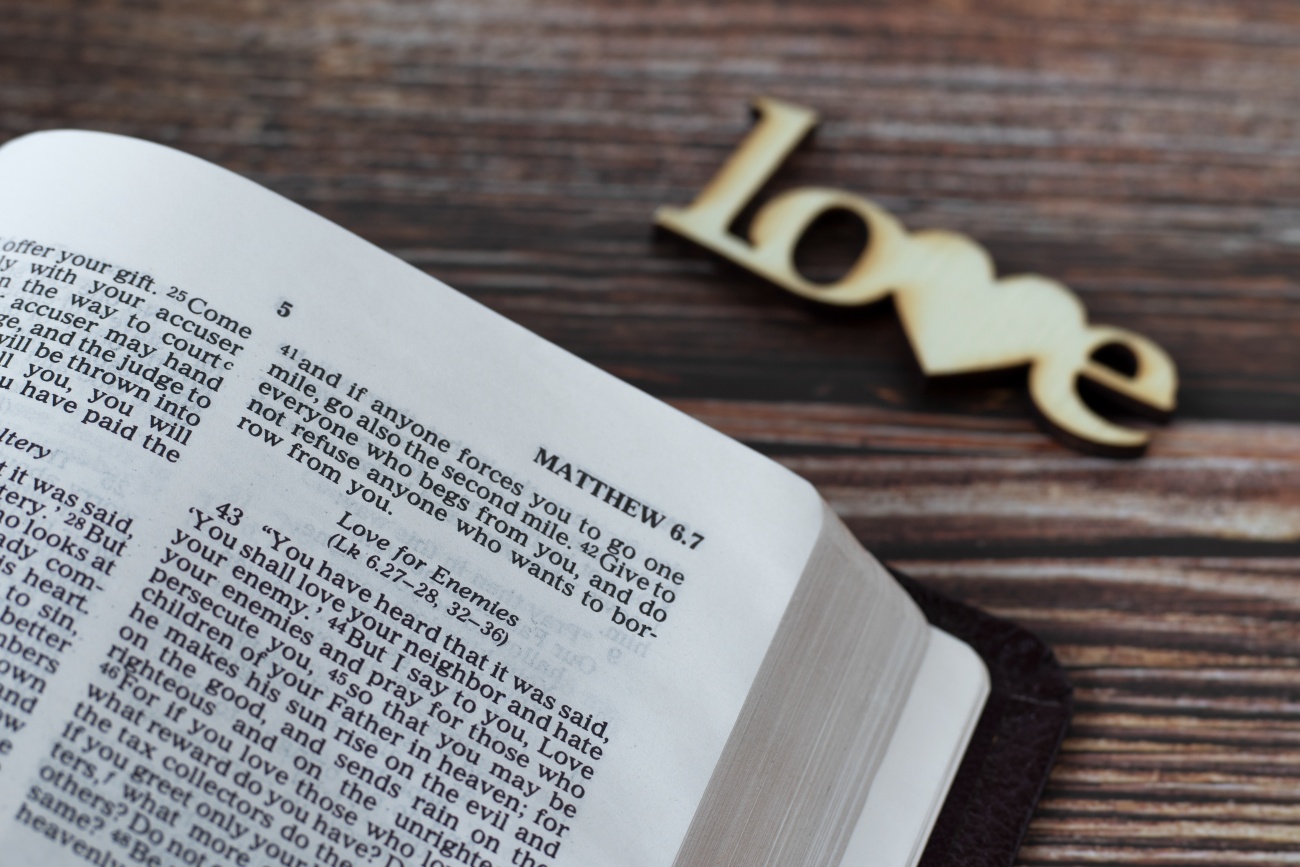Love and Forgiveness
Forgiveness is the balm that heals all wounds and binds up again all broken relationships.
Love and forgiveness. In these two words, we discover the nature of God, the reason for the Incarnation, and the way to our salvation. Someone once said, “History is the patience of God”. Think about that for a minute and let it sink in. Patience is an act of love. We cannot be patient with persons or things that we do not love. God’s love for his creation and his children, though constantly tested, has proven to be infinitely patient.

Psalm 103:8 tells us, “The Lord is kind and merciful, slow to anger and rich in compassion. And again in Psalm 145: 8-9, we see, “The Lord is gracious and merciful, slow to anger and abounding in mercy.” Throughout holy scripture, we see the evidence that despite all of our human failings, great and small, God’s love is never diminished. Over and over again we have seen his infinite mercy and compassion displayed, and yet our fallen humanity continues to test it, even in the face of all of the evidence.
Of course, the most profound of incontrovertible evidence of God’s love for us is the Incarnation. Jesus is the living proof of God’s love. “For God so loved the world that he gave his only Son so that everyone who believed in him might not perish but might have eternal life, John 3:16. We saw God’s love and compassion for the Jews when he led them out of slavery in Egypt. This time, “Though he was in the form of God, did not regard equality with God something to be grasped. Rather, he emptied himself taking the form of a slave, coming in human likeness; and…humbled himself, becoming obedient to death, even death on a cross,” Phil. 2:6-8. And in this, he has delivered us from an even greater slavery, that of sin and death.
If you have been reading closely, the unspoken part of love that has been revealed throughout the scriptures, but most especially in the life, death, and resurrection of Jesus Christ, is forgiveness. John tells us in 1 Jn 4:8 that, “God is love.” By this, we know that love is infinite and eternal. But since the fall of Adam, that love has been continuously tested by humanity, by each and every one of us. Forgiveness is the balm that heals all wounds and binds up again all broken relationships. Because of our broken relationship with God, Jesus, the Son of God, died for us and rose again from the dead, in order to bring us back into relationship with him, and to make eternal life available to us once again.

How do we say thank you for a gift given to us? Say your grandmother, who loves you dearly and whom you love dearly in return, buys you a sweater for your birthday. It is not something that you would choose, but how do you thank her for her love and her thoughtfulness represented by this gift? Just saying thank you is too easy. Show her that you love her by putting it on and wearing it joyfully.
Jesus has given us the unimaginable gift of his love and his forgiveness willingly, abundantly, and unconditionally. How do we say thank you to God for such a gift? Jesus gives us the answer to this and it is of ultimate importance that we listen to this and hear this deeply: “I give you a new commandment: love (forgive) one another. As I have loved you, so you also should love one another,” Jn 13:34. He does not ask us to do anything that is beyond our abilities. Jesus commands us to do this precisely because he knows that we are made of the “right stuff,” though we forget and need to be continually reminded of this. Love and forgiveness are the way that Jesus calls us to follow. It is this narrow way that leads us to the kingdom of God. We say thank you to God every time we forgive one another out of love for him and for them.
SKM: below-content placeholderWhizzco for FHB

